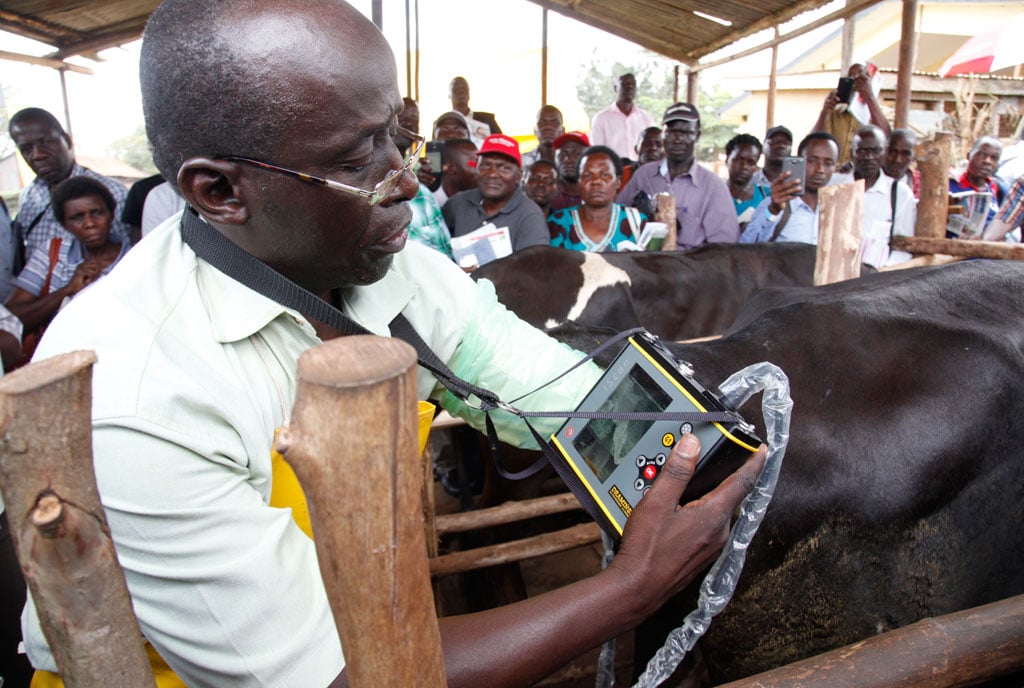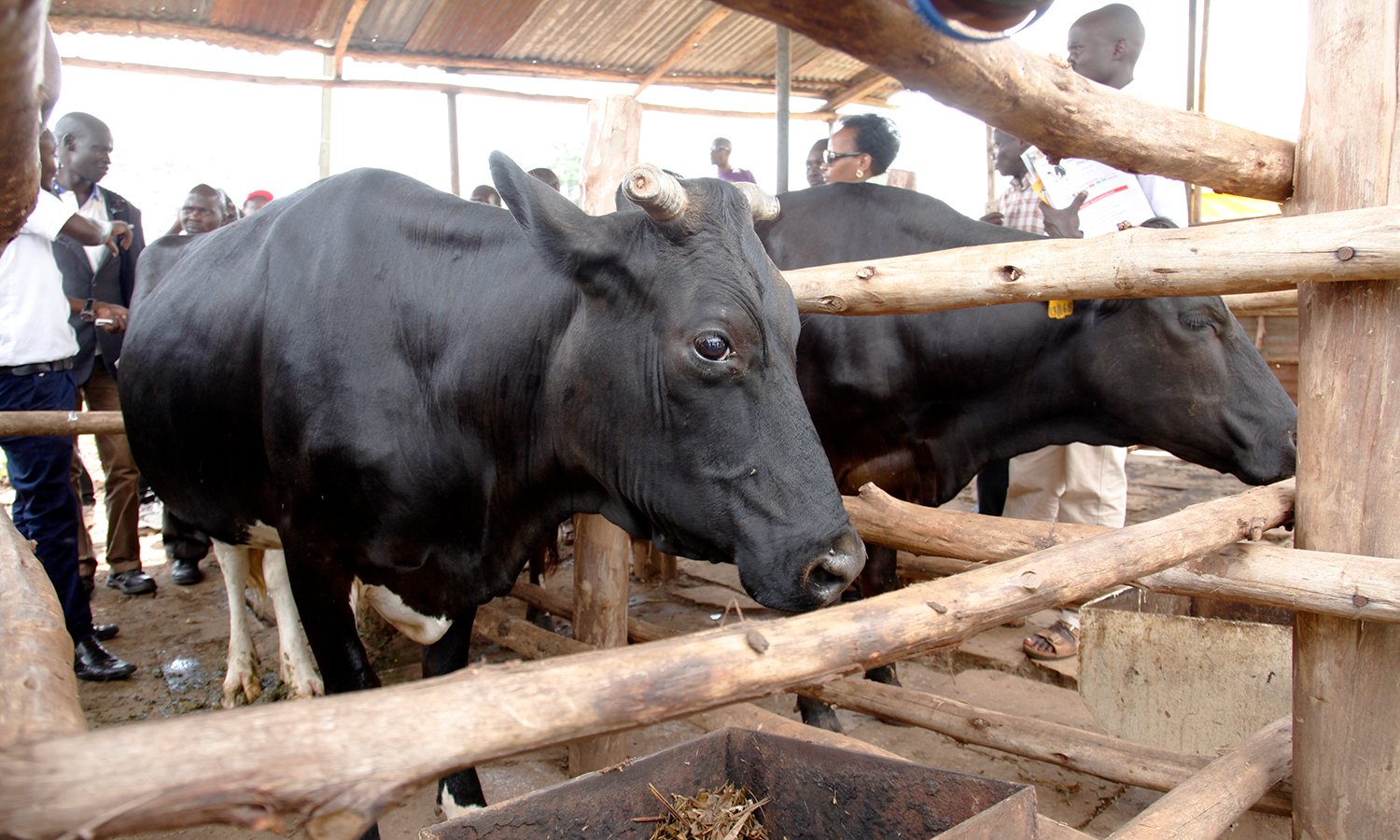Prime
Benefits 2023 Animal Feeds Bill shall bring livestock industry if passed

A man feeds cows in Uganda.
What you need to know:
- With the proposed regulations, if implemented well, our livestock sub-sector will increase productivity at farmer and national level.
The livestock sub-sector plays a key role in the socio-economic development of our country. It provides food, employment, export revenue as well as income to the farmers and other stakeholders.
The sub-sector’s potential is very high given Uganda’s comparative advantage in the East Africa region in terms of agro-ecological conditions and strategic location.
However, its productivity is low due to prevalence of animal diseases, inadequate nutrition for the animals and the scarcity of water in the semi-arid areas majorly the cattle corridor.
Many studies identified inadequate animal nutrition as one of the major factors limiting Uganda’s production of livestock products, especially in poultry, pig and dairy intensive production systems.
Animal feeds account for 70 percent of the production costs in these systems and therefore have a significant effect on the production costs and the profits.
In addition, the level of nutrition influences the infection rates and disease resistance in animals and therefore low level of nutrition is challenging the production of livestock products nationally.
Despite the availability of ingredients for animal feeds, there are constraints limiting the exploitation of this potential, among them, poor formulations, mushrooming feed companies with counterfeit products and lack of information among farmers. Supply of the right animal feed is among the challenges in the country the Bill will deal with to increase productivity of the sector.
It is therefore necessary to upgrade the animal industry through provision of the right animal feed. Among the primary ways we can have this is by prioritising the 2023 Animal Feeds Act.
In 2005, the National Animal Feeds Policy gave a formal framework upon which the animal feeds industry would develop within the broader Plan for Modernisation of Agriculture.
Through this policy, government intended to develop the local capacity of stakeholders to optimally utilise the feed resources in order to increase the supply as well as improve the quality of animal products and by-products and to maximise the benefits of the sub-sector. However, there are many changes in the sector between then and now.
The 2023 Bill, through establishing the Animal feeds committee proposes to regulate the production, importation, exportation and marking of animal feeds and ensure quality work by all stakeholders.
The Bill provides for the application for the registration of premises and the circumstances under which a certificate of registration may be suspended or revoked. It also provides for the requirement for licensing, of the production, storage, transportation, or sale of animal feeds, and the renewal and revocation of licences.
The Bill also proposes to establish the offices of animal feeds inspectors and animal feeds analysts, which through their activities will fight fake products that may retard the development of the sub-sector. The animal feeds inspectors shall inspect premises and seize any animal feeds that is produced contrary to the requirements of the Act.
With the proposed regulations, if implemented well, our livestock sub-sector will increase productivity at farmer and national level. It is my sincere hope and conviction that the Bill is passed and all of us will give the required support to make the implementation a success.
Muzinga Jamilu, Master of Science in Animal Science
[email protected]




